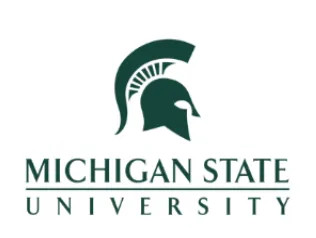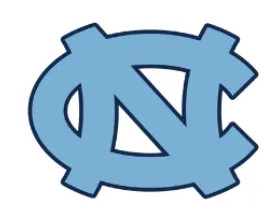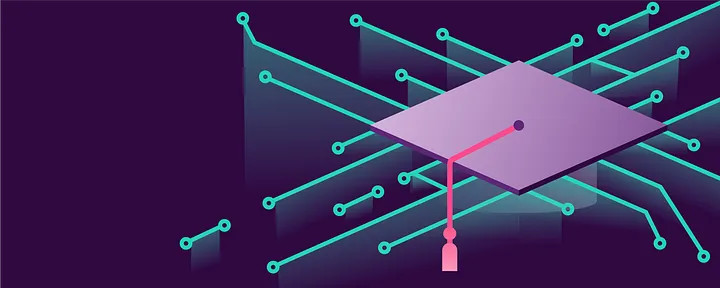Harnessing Universities to Iterate on Innovation
- Harish Naik
- 6 min read
Universities are flourishing innovation ecosystems that, if approached strategically, are more than a channel for recruiting. We know that technology evolves as quickly as customer expectations change. We founded Ally Tech Labs to experiment with new and emerging technologies to help our organization ‘see around corners’ and to anticipate customer needs. Ally Tech Labs functions within a unique operating model — a self-contained startup within an enterprise technology environment. The investment in establishing a technology incubation lab allows us to accelerate the adoption of new technologies, drive a culture of engineering excellence, and gather insights that influence business decisions.
There are many strategies to explore, test, and learn and we’re always looking for opportunities to augment our team to help expand our horizons. One key strategy, particularly to seed early-stage innovation, is to engage and work with universities. We collaborate with universities to incubate new ideas, evaluate new technologies, and develop proof-of-concepts. Ally has relationships with many schools, and in this blog, we’ve focused on our work with two leading STEM institutions — Michigan State University (MSU) and the University of North Carolina (UNC) at Chapel Hill. We hope our insights help provide an approach on how your organization can develop deeper relationships with local universities.
Standing Relationships

In 2021, Ally began sponsoring Michigan State capstone projects. A capstone project is a final or culminating project for graduate school students, which provides a unique opportunity for students to carry out independent group research and devise an innovative solution for a real-world problem. It not only aims to provide a real-life working experience, but also helps students to hone technical skills that will ultimately serve them well into their careers.
It has been a great experience to work with a group of students each semester by providing them with a unique problem statement from our backlog to address the challenges and problems associated with emerging tech that we want leverage. The results have been incredible!

In 2020, the Ally Tech Scholars program was created at University of North Carolina (UNC) to recognize outstanding undergraduate students and provide them with an immersive educational experience by working on a real-world industry project as part of their coursework. Working with the School of Information and Library Science (SILS) team, we select four candidates each semester and assign them projects. Mentorship from a SILS faculty member, as well as a supervising professional at Ally Tech Labs, gives these scholars a deep experiential learning opportunity.
The Approach — Revolutionizing the Collaboration Process
Collaborating with universities requires a visionary approach and meticulous planning to ensure a successful relationship. At Ally Tech Labs, we believe in going the extra mile to ensure our collaboration leads to productive innovation. Outlined below is our high-level approach.
Identify Problem Statement — Identify a business or technical problem statement that aligns with our strategic initiatives for each engagement, for each semester
Validate Expected Outcomes — Align on the expected outcome of the prototype, finalize the technical stack to be leveraged, and then prepare the user interface (UI) designs and mock-ups prior to the initial engagement
Provide Supplemental Technical Resources — Identify resources for pre-read or GitHub samples to help students get started on new technologies or concepts
Conduct Technical Skills Assessment — Work with students to gauge their technical strengths and guide them through the details of the project
Establish High Level Plan then Coach — Initially define the project milestones then give students the freedom to modify the product requirements or add additional features that will benefit the end-users, providing coaching and support throughout
Establish Engagement Cadences — After initial kickoff, switch to weekly stand-ups to provide mentorship and guide through any roadblocks
Utilizing this approach has ensured a meaningful experience for the students as well as a value-add corporate investment. We’ve featured several successful projects at the bottom of this post.
Collaboration Benefits
There are many tangible and intangible benefits from public-private collaboration — including driving innovation, developing thought leadership, and building networks.
For students, interacting with professionals helps them gain insight into career paths and prepare to enter the modern workforce. Examples of these include:
Obtaining hands-on opportunities to fine tune existing skills and develop new ones
Acquiring crucial knowledge of how to develop and drive creative projects
Improving presentation and communication skills
Accessing experiential learning and mentorship
Identifying opportunities for internship and job opportunities
For organizations, working with universities drives the innovation ecosystem. Examples of these include:
Accelerating internal innovation by evaluating new technologies or developing a prototype of innovative forward-thinking concepts
Identifying emerging talent with a deep knowledge of capabilities and strengths, and pipelining them for future employment opportunities
Elevating corporate brand awareness across the university
Example — University Collaboration Prototypes
All projects outlined below are proof of concepts only and not currently live for Ally customers to leverage. They exemplify the possibilities of technology and the forward-thinking innovation coming out of our university collaboration. Where able, innovations are hyperlinked to the direct presentations for further detail.
Digital Avatar Assistant — AI as a companion Developed through the MSU collaboration, students created a conversational chatbot called Bridget who provides a lifelike engagement and assistance to support varying financial asks and tasks, many prompted based on leveraging predictive, artificial intelligence.
Peer2Peer Lending Platform — Experimentation with Blockchain Students at MSU utilized blockchain to create an instant loan payout Peer2Peer (P2P) Lending Platform.
Ally Kudos MSU students created an employee recognition platform to strengthen coworker connections. The capstone won the TechSmith Screencast Award for the best presentation video.
Augmented Reality (AR)/ Extended Reality (XR) Developed through the UNC collaboration, students created an application that allows customers to scan a vehicle and get the virtual display of all the vehicle information. This fully immersive experience has various use cases to empower customers in their auto purchase journeys.
Exploring Password-less Authentication & Authorization using Facial Recognition As part of the Ally Tech Scholars program students at UNC created an application to detect facial authentication through an image, video, or any audiovisual element for authorization.
Emerging Collaborations
In addition to the more traditional final capstone or semester project approach, Ally is constantly evaluating opportunities to take university collaborations a step further. In 2022, we established a long-term commitment to Queens University’s Charlotte Talent Initiative. Through this collaboration, we’ll provide full-tuition scholarships, internships, and job placement opportunities for Charlotte-area students from low-income communities. We’re excited for our first cohort of students to start in the fall and to provide them with onsite experiences and access to mentors that complement their curriculum and personal development. This collaboration will shape future leaders and build a talent pipeline in the data analytics space.
Also, we look for opportunities to expose our own internal rising and existing subject matter experts to emerging research and development. Working together with the University of Chicago and the Chicago Quantum Exchange, members of our analytics team deepened their expertise and had the opportunity to participate in a special project, building a circuit that ran on an IBM quantum computer. This level of exposure kickstarted multiple proof of concepts and accelerated Ally’s quantum, and overall AI, journey.
Unlocking More Value
No matter how a university program is formatted, we believe that long-term collaboration with academia can make a tremendous impact on engaged companies, the universities and their students. However, it’s a big and serious undertaking to engage and cultivate young minds. A successful collaboration requires a significant amount of work to set up, but the upfront investment is worth the downstream returns. It’s remarkable to see how the current generation develops new product concepts and how they intend to leverage new technology. By shaping our services and offerings accordingly, we ensure that we stay ahead of the curve. Moreover, we create a strong talent pipeline to support hiring and growth, while students access experiential learning, mentorship, and real-time industry jobs. Together, we are creating the future of innovation.
Interested in joining Ally's team of talented technologists to make a difference for our customers and communities? Check outAlly Careersto learn more.